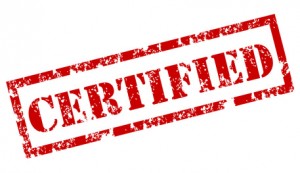It is not often I get one of those inspirational moments to write a blog on a topic; however, an enquiry yesterday made me want to talk about this topic.
The enquiry: “I’ve been freelance for 20 years and usually make a reasonable gross profit. We’ve found a great mortgage deal. Perfect! *BUT* they won’t take my income into consideration at all unless I provide 3 years’ audited accounts signed off by a certified accountant. I’ve always handled self-assessment myself and never consulted an accountant (sorry!)”
There are some key issues here obviously.
- Handling your own self-assessment is fine. I have always stated that most people are capable of preparing their own returns, based on their income and allowable expenditure. Tax planning is a different matter but people obviously have different needs.
- The mortgage company have asked for ‘audited’ accounts. This is a term that is often used and can be misleading. Audits are only statutorily applicable to companies over certain size thresholds, so not applicable to Sole Traders. What they really mean is having the comfort of an accountants report.
- The other key issue is the term ‘qualified’. As I have blogged about before it is important to get the distinction right; however, it is probably more useful to know what the mortgage company will accept. Nationwide have published what they will accept as suitable accounting bodies.
- The Institute of Chartered Accountants (ACA/FCA)
- The Association of Chartered Certified Accountants (ACCA/FCCA) PAH Accounting 🙂
- The Chartered Institute of Management Accountants (CIMA)
- The Chartered Institute of Public Finance Accountancy (CIPFA)
- The Association of Authorised Public Accountants (AAPA)
- The Association of International Accountants (AIA)
- The Chartered Institute of Taxation and Association of Taxation Technicians (CIOT/ATT)
- The Institute of Chartered Accountants of Scotland (ICAS)
- Chartered Accountants Ireland (CAI)
So are there ways around this without consulting an accountant? Of course there are. Again it is dependant on your mortgage provider and what they will accept. Most will accept confirmation of income from HMRC, in the form of a letter confirming the net profit, an official stamped Self Assessment SA302 tax return, or an online SA302 (OUID) printed by the tax office and accompanied by covering letter from HMRC. To get this you would need to apply to HMRC and request it.
Potential fringe benefits of using an accountant are that they can give a more detailed scenario of the clients income. i.e. retained customer analysis, debtor/ cashflow reports, budgeting/ forecasts etc. This may help a client with lower income get a better mortgage rate.
It all comes down to the mortgage lender in this scenario; however, could it have just been easier by using an accountant in the first place. You never know, we may have saved you some money elsewhere 🙂


